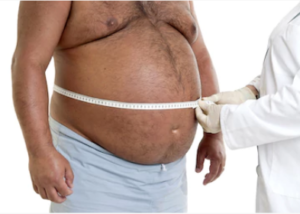“Maybe she has cancer,” you might hear when commenting how thin a woman is and assuming she has an eating disorder. Is it cancer or anorexia nervosa?
There are very thin women who’ve actually been asked, “Do you have cancer?”
However, we can gather that many people will silently assume that a frightfully thin woman has cancer.
On the other hand, there are those who immediately assume the eating disorder anorexia nervosa when spotting a significantly underweight woman.
“Up to 80% of cancer patients lose weight at some point during their disease, and cachexia is responsible for up to 20% of cancer deaths,” says Jonathan Stegall, MD, an integrative oncologist and medical director for The Center for Advanced Medicine, an adult cancer treatment center in Alpharetta, GA.
I’m in that second boat of people whose mind instantly jumps to anorexia nervosa when I see an emaciated woman out and about in public.
This is because, in my understanding, when a cancer patient loses so much weight that they’ve become literally emaciated in appearance, they’d be in end-stage disease – too weak to spend two hours straight on the elliptical trainer at a gym.
Instead, they’d be in bed most of the time, and barely able to walk about at a store, let alone visit a gym and use numerous upper body machines after spending 90 minutes on a stationary bike.
However, cancer does cause weight loss. But how much?
There’s no definitive data in terms of how much weight loss cancer can cause, says Dr. Stegall.
“The data seems to get fuzzy since we often attribute weight loss to lack of appetite from cancer treatment.”
The disease itself, though, causes weight loss: cachexia. This is an inflammatory process that leads to loss of muscle and also sometimes fat.
Perhaps you’ve read in symptom lists for cancer these exact words: “Unintentional weight loss.”
Have you read stories of people who suddenly began losing weight, and it turned out they had cancer?
Perhaps you’ve noticed that often, the patient was overweight to begin with, and after losing 60 pounds, they were still overweight.
They then got the cancer diagnosis after being misdiagnosed or delaying seeing a doctor.
Typically, the weight loss stops. They don’t keep getting thinner and thinner and looking like they have an eating disorder – unless they progress to end-stage disease, which renders them confined to bed and hardly eating.
An end-stage cancer patient isn’t always severely underweight, however.
But can an emaciated cancer patient be well enough to be out and about in public?
Is it accurate to assume that the next “anorexic looking” woman you see at the gym spending an hour on the crunch machine and then another hour on the revolving staircase is actually battling cancer that’s wasting away her body?
“I agree that the overwhelming majority of extremely thin people have an eating disorder and not cachexia due to cancer,” says Dr. Stegall.
“I have definitely had patients who had cachexia and surprisingly were fairly high functioning, but they tend to see a decline in their quality of life if effective treatment isn’t instituted.”
And what is high functioning in this case? It takes a lot more energy to spend two hours on cardio equipment in an effort to cancel out the calories from dry tuna and an apple than it does to simply go shopping with family members or run a few light errands.
So thus, a cancer patient with cachexia, who’s alarmingly thin, may still be able to do things in the community such as attend a movie.
But it’s unlikely – highly unlikely – that the skin-and-bones woman in the gym locker room, who just spent two nonstop hours furiously pedaling on the elliptical trainer, is so severely underweight due to cancer.

Shutterstock, VGstockstudio
There was a woman I kept seeing at one particular gym who frenetically used the elliptical trainer and treadmill (though holding on), and also made rounds on resistance equipment (very light resistance, of course).
She couldn’t’ve weighed more than 80 pounds. One day I saw her in a bathing suit.
Every vertebral bone was visible. Her scapula bones jutted out along the top of behind her back.
She was literally emaciated: 80 pounds at average height soaking wet.
Every time I went to the gym, at varying times, she was there.
Then one day she stopped coming; she hasn’t returned.
Statistically, it’s more likely that her extreme thinness was from anorexia nervosa rather than from cancer, being that she had the energy to get to the gym at least several days a week for sessions at least two hours on her feet.
Obesity just As Dangerous As Wasting Away

Tony Alter, CC BY 2.0/screativecommons.org
Obesity reduces the risk of cachexia from cancer, says Dr. Stegall.
But this doesn’t mean that obesity has health advantages.
In addition to being a major risk factor for blood clots, miscarriage, liver and kidney disease, gallbladder disease, type 2 diabetes, chronic heart failure and blocked arteries, “Over a dozen cancers are linked to excess body weight, and being overweight or obese is arguably the most significant risk factor for developing cancer today,” says Dr. Stegall.
This includes cancer of the colon and uterus.
Cancer can cause weight loss in people of any weight, though if they’re obese, there will be more weight that can be lost.
As a result, an obese person who’s losing weight due to cancer is not at high risk for becoming severely underweight.
Unfortunately, there are people who use this fact to promote the idea that even a morbidly obese individual can still be healthy.
This is akin to saying that a chain smoker is healthy because, at that moment, she doesn’t have lung cancer or emphysema.
It’s much more common to hear of a 230 pound woman who lost 60 pounds from cancer and was still productive in the activities of daily living, vs. a 130 pound woman who lost 60 pounds and was still getting out into the community.
An anorexic woman of 80 pounds is in a very sick state. But she is not in as precarious a position as is the 80 pound cancer patient.
The woman with anorexia nervosa, who at 5’7 weighs 85 pounds, may still be able to work a full-time job as a restaurant server.
It’s unlikely that the cancer patient of the same height and weight will have the energy to maintain this line of work.
Unexplained weight loss may be the first visible sign of cancer. The ruthless disease raises the body’s energy needs.
If the food intake remains the same, weight loss will occur. An overweight person will be very pleased with the unexpected loss of pounds.
But if there’s no explanation such as reduced food intake or increased physical activity, they need to see their primary care physician. Diabetes is another condition that can cause weight loss.
Summary
• Women you see at the gym whose weight is in the 80s or 70s are much more likely than not to have anorexia nervosa rather than cachexia from cancer or extreme weight loss from cancer treatment.
• While it’s really great that there’s growing opposition to the promotion of morbid obesity on TikTok and Instagram, there should be more attention towards the problem of extreme undereating.
• Unexplained weight loss – or weight gain – warrants medical attention.


 Jonathan Stegall, MD,
Jonathan Stegall, MD,







































